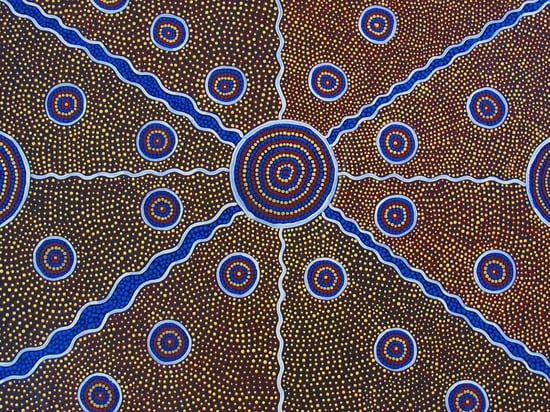National Reconciliation Week (NRW) is a powerful reminder for all Australians to reflect on our shared history and take meaningful steps toward building stronger relationships between Aboriginal and Torres Strait Islander peoples and the wider community. Each year, NRW runs from 27 May to 3 June, offering individuals and organisations an opportunity to contribute to reconciliation through education, reflection, and action.
At Cleancorp, we believe that reconciliation isn’t just a one-week initiative—it’s an ongoing journey of respect, learning, and collaboration. This year, we’re embracing meaningful ways to celebrate NRW, reflect on the past, and commit to actions that pave the way for a more inclusive future.
Here’s how we plan to honour National Reconciliation Week and how your organisation can take part, too.
1. Starting Our Meetings with an Acknowledgement of Country
Acknowledging Country is a simple yet powerful way to pay respect to the Traditional Custodians of the land. During NRW, Cleancorp will begin our Tuesday team meetings with an Acknowledgement of Country, recognising the Gadigal people of the Eora Nation and other Traditional Custodians of the lands where our offices and team members operate.
To make this more impactful:
- Employee Empowerment: We’re encouraging our team members to learn how to deliver an Acknowledgement of Country themselves, fostering a deeper connection and understanding of its significance.
- Resources and Training: We’ll provide resources and workshops for employees to confidently and respectfully deliver acknowledgements in their own words.
Why It Matters:
An Acknowledgement of Country shows respect for the enduring connection that Aboriginal and Torres Strait Islander peoples have with the land, waters, and culture. It’s a small yet vital step in demonstrating our commitment to reconciliation.

2. Creating a Permanent Plaque or Artwork in Honour of Traditional Custodians
To make our commitment to reconciliation visible and enduring, Cleancorp will install a permanent plaque or artwork in our office. The plaque will acknowledge the Traditional Custodians of the land where Cleancorp operates and serve as a daily reminder of the importance of respect and recognition.
We’re also exploring:
- Commissioning Artwork: Partnering with an Indigenous artist to create a unique piece that reflects the culture and stories of the Traditional Custodians.
- Involving Our Team: Hosting a small unveiling event during NRW to share the story behind the plaque or artwork and reinforce its significance.
Why It Matters:
Permanent acknowledgements ensure that reconciliation remains front of mind every day, not just during NRW. They serve as symbols of respect, unity, and a commitment to learning from Australia’s First Peoples.
3. Office Pledges for Reconciliation Commitments
We’re introducing an office pledge wall during NRW, inviting team members to write down their personal or team commitments to reconciliation for the year.
How It Works:
- Create a visual display in the office where employees can add their pledges.
- Encourage pledges that focus on actions, such as learning more about Indigenous history, supporting Indigenous businesses, or attending cultural events.
- Share the pledges on our social media channels (with consent) to inspire others to take action.
Why It Matters:
Pledges create accountability and foster a sense of collective purpose. By sharing commitments publicly, we can inspire ongoing efforts to support reconciliation both inside and outside the workplace.
4. Additional Actions Cleancorp Is Taking for NRW
Educational Resources
- We’ll provide resources like fact sheets, books, and videos on the histories, cultures, and achievements of Aboriginal and Torres Strait Islander peoples. By encouraging team members to explore these resources, we aim to deepen their understanding and empathy.
Partnering with Indigenous Suppliers
- Cleancorp is committed to working with Indigenous-owned businesses for cleaning supplies and other services. NRW serves as a reminder to strengthen these partnerships and support economic empowerment within Indigenous communities.
Team Events and Cultural Activities
- We’ll organise team events such as cultural workshops, Indigenous cooking classes, or storytelling sessions led by Aboriginal and Torres Strait Islander educators. These experiences allow employees to engage directly with Indigenous culture in a meaningful way.

How Your Organisation Can Get Involved
If you’re inspired by these ideas, here’s how you can incorporate them into your NRW plans:
- Start Meetings with an Acknowledgement of Country: Make this a regular practice, not just during NRW.
- Install a Plaque or Artwork: Create a lasting symbol of respect in your workplace.
- Host a Pledge Wall: Encourage employees to commit to personal or team reconciliation actions.
- Educate Your Team: Share resources and host workshops to deepen understanding.
- Support Indigenous Businesses: Make a conscious effort to engage with Indigenous suppliers.
- Organise Cultural Activities: Create opportunities for employees to connect with and learn from Indigenous culture.
Keep an Eye on Cleancorp’s Celebrations
At Cleancorp, we’ll be sharing our National Reconciliation Week activities on our social media platforms. From team pledges to the unveiling of our reconciliation plaque, we’re excited to celebrate this important week and demonstrate our ongoing commitment to reconciliation.
Follow us on LinkedIn to see how we’re embracing National Reconciliation Week 2025.
Conclusion: Reconciliation Is Everyone’s Responsibility
National Reconciliation Week reminds us that every action (big or small) contributes to a better future. At Cleancorp, we’re committed to creating a workplace that honours the cultures, histories, and contributions of Aboriginal and Torres Strait Islander peoples.
By taking these steps, we hope to inspire others to join us in building stronger, more inclusive communities where everyone feels respected and valued.
Ready to learn more or partner with Cleancorp? Call us at 1300 211 944 or visit our website to see how we’re making reconciliation part of our everyday operations.